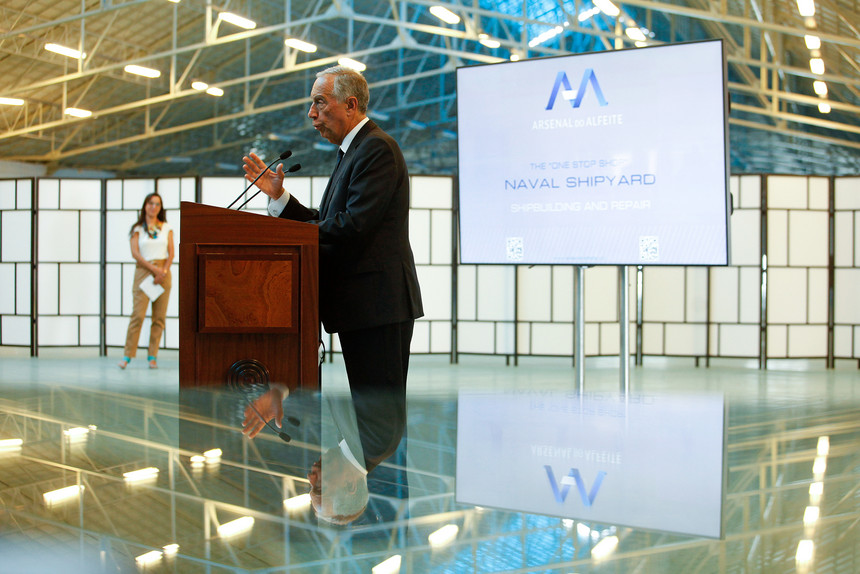The President of the Portuguese Republic, Marcelo Rebelo de Sousa, at the 7th Congress of the National association of professional schools (ANESPO) in July 2017 supported that Portugal should make a “stronger investment on vocational education” since it is crucial to reduce early leaving rates.
 Achieved the enlargement of compulsory education (essential to guarantee the universalisation of the secondary level of education), the fight against early leaving depends on the expansion of vocational education share. Without a vital commitment in this subject, Portugal may not fulfil the European goal of reducing the rate of early leaving to 10% by 2020, he said.”Vocational education can’t be seen as second-chance education, as a teaching for the neediest, a way for students who fail in school. In my point of view, it never had a reason to be; it corresponds to a social prejudice. And the young people must say it, and the professors must say it too, and the society should proclaim it permanently”. Thus, it is necessary to “erase what remains of prejudice” against vocational education and training (VET).
Achieved the enlargement of compulsory education (essential to guarantee the universalisation of the secondary level of education), the fight against early leaving depends on the expansion of vocational education share. Without a vital commitment in this subject, Portugal may not fulfil the European goal of reducing the rate of early leaving to 10% by 2020, he said.”Vocational education can’t be seen as second-chance education, as a teaching for the neediest, a way for students who fail in school. In my point of view, it never had a reason to be; it corresponds to a social prejudice. And the young people must say it, and the professors must say it too, and the society should proclaim it permanently”. Thus, it is necessary to “erase what remains of prejudice” against vocational education and training (VET).
He explained that last year “Portugal had an early leaving from education of 14%, which means an increase of three-tenths compared to 2015” and cited data on the significant evolution of VET increasing from 28% in 2000/2001, 33.5% in 2005/2006, 42.7% in 2010/2011, and 43.5% in 2014/2015
The current decade has revealed a stagnation of the importance of vocational pathways in the educational system, showing the postponement of the main goal recommended by the OECD several years ago and assumed by several governments: guarantee that at least 50% of secondary school students attend these routes, “he lamented.
The President insisted that “raising the Portuguese qualification levels, guaranteeing the universalisation of secondary education, will not be done without a stronger investment in vocational education” and he sustained that “we need to take this progress further, but in a consistent way”.
According to his words, it is necessary to “build a network of secondary level training offer that considers the business world,” and “there is no need to have complex” in this collaboration.
He appealed, to stability and predictability of the professional programmes provision, avoiding payment and reimbursements delays of the operational programmes.
In the last decades, Portugal invested in an education model based on class equality, bringing everything back to a single matrix, sacrificing the experience of industrial schools, commercial schools, and agricultural training schools that were a richness in the Portuguese educational system.
Marcelo Rebelo de Sousa emphasises that this simple vision that everyone should be the same, everyone should walk the same path, and everyone should have the same educational pathway, needs to fall apart, urgently.
Other sources:

